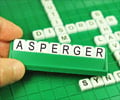Researchers at Yale University have discovered the 'DCDC2' gene associated with dyslexia.
Researchers at Yale University have discovered the 'DCDC2' gene associated with dyslexia. Dyslexia causes learning disabilities and affects millions of children around the world.
The gene called 'DCDC2' gene is located on human chromosome 6 according to the researchers. The researchers found that a genetic alteration in DCDC2 causes disruption in the formation of brain circuits and this genetic alteration is transmitted within families."These promising results now have the potential to lead to improved diagnostic methods to identify dyslexia and deepens understanding of how the reading process works on a molecular level," said Jeffrey R. Gruen, M.D. from Department of Pediatrics at Yale School of Medicine.
"We now have strong statistical evidence that a large number of dyslexic cases--perhaps as many as 20 percent--are due to the DCDC2 gene," said Gruen. "The genetic alteration on this chromosome is a large deletion of a regulatory region. The gene itself is expressed in reading centers of the brain where it modulates migration of neurons. This very architecture of the brain circuitry is necessary for normal reading" he further added.
Gruen and co-authors compared specific DNA markers in 153 dyslexic families. For normal reading abilities the brain circuits communicate with each other. However when these circuits are disrupted thee is reading disability that presents as dyslexia. Although compensatory brain circuits are formed to compensate but these are ineffective in most of the children.
"We now have strong statistical evidence that a large number of dyslexic cases--perhaps as many as 20 percent--are due to the DCDC2 gene," said Gruen. "The genetic alteration on this chromosome is a large deletion of a regulatory region. The gene itself is expressed in reading centers of the brain where it modulates migration of neurons. This very architecture of the brain circuitry is necessary for normal reading."
The gene identification will provide a new tool for early diagnosis of dyslexia and more effective educational programs to address the unique needs and special talents of people with dyslexia.
Advertisement
Contact: Karen N. Peart [email protected] 203-432-1326 Yale University











